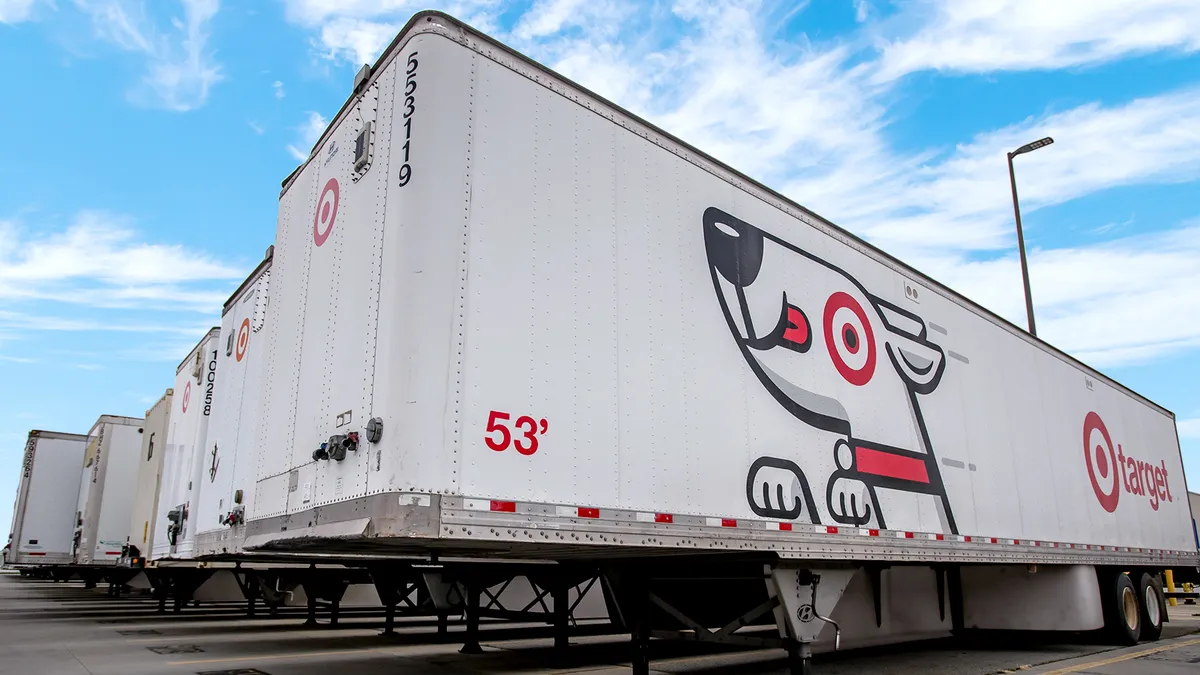Target and Walmart want shoppers to know that their supply chains are OK.
Both retailers in recent days have issued public comments reassuring customers that they are proactively managing their imports and logistics, and will be stocked for the holiday season. The statements come amid media reports, including in this publication, of widespread supply chain woes that could leave many retailers under-stocked for the season.
In a press release Tuesday, Target said that "even as unprecedented supply chain challenges continue to impact retailers and industries across the globe, including the situation at our nation's ports, we're ready to deliver the easy, inspirational holiday shopping experience our guests love."
The company outlined its strategy for mitigating backups through the global shipping and supply network, including through mass hiring for its supply chain, 24-hour-a-day operations and by moving 50% of its containers at woefully congested ports in Long Beach and Los Angeles at night. Target plans to increase night pickups by 10% in the next 90 days.
Target also touted past investments that leave it better equipped today, including four new sortition centers as well as two new distribution centers.
The company's efforts have meant that inventory is "up substantially over the same time last year, helping us feel prepared to deliver for millions of families this season," according to Target.
Walmart took a similar approach. Late last week, Joe Metzger, executive vice president of supply chain operations at Walmart U.S., put out a company post outlining how the retailer was mitigating backups around the world.
"Knowing the challenges the overall supply chain system is facing, we're taking additional steps to navigate the hurdles and minimize disruption, so we can deliver for our customers this holiday season," Metzger said.
The executive went on to note Walmart's efforts, including chartering ships, diverting shipments to less congested ports, rerouting inland shipments, boosting wages for supply chain workers, hiring new truck drivers and supply chain staff, and adding storage capacity.
When it comes to weathering this year's unprecedented supply chain disruptions, Walmart and Target, and other retailers of their size, have distinct advantages. Shipping volume and financial resources allow them to do all the things that those companies outlined, from chartering ships to hiring workers to building new capacity — all of which can take considerable stress off an individual company's supply chain.
Other retailers are left with a painful menu of options, chief among them long wait times for shipments and astronomical increases in freight costs — and high freight rates don't at all guarantee timely shipments. Just ask Dollar Tree executives, who have increased estimates for the year's freight costs while dropping their expectations for what carriers will deliver against their commitments. Others are turning to expensive air freight and other options to get products into the country and onto shelves.
Even with those efforts across the country, many observers still expect to see a lot of empty shelves during the holiday season. As retailers pay higher costs, they'll protect margins by going light on discounts, and more tightly tailor discounts to inventory. They will also likely raise prices for customers, with many analysts anticipating price inflation for customers.
















